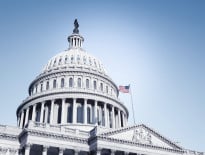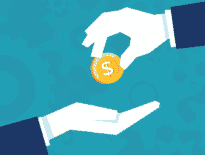More Americans than ever obtained a basic bank account in 2019, the Federal Deposit Insurance Corp. said Monday. But data was gathered before the outbreak of the coronavirus pandemic and start of this historic recession.
But the agency noted that the loss of jobs and incomes due to the pandemic in 2020 likely reversed these positive trends.
The FDIC study looks at the unbanked – Americans who do not have a basic checking or savings account – and the reasons why these individuals are outside the traditional bank system. While a small number of Americans choose not to have a bank account due to their distrust of the banking system, most unbanked are in poverty and more likely to be Black and Latino, a remnant of the systemic racism that plagues the financial system.
The FDIC estimates that 5.4 percent of Americans in 2019 were considered unbanked, a record low for that metric since the report started in 2009, down from 6.5 percent in 2017 which is when the FDIC looked at the unbanked. That is equal to roughly 7.1 million households, the FDIC said.
The 5.4 percent figure does not tell the full story, mostly because racial and ethnic minorities are disproportionately more likely to be unbanked. The FDIC study shows only 2.5 percent of white households are unbanked, while 13.8 percent of Black households and 12.2 percent of Hispanic households are considered unbanked. Roughly one out of four households making less than $15,000 a year do not have a bank account.
The FDIC was unable to give an estimate on how much the COVID pandemic has moved banked Americans into the unbanked, but it almost certain that figure is climbing currently. The Great Recession caused millions of Americans to lose their bank account, and the number of unbanked hit a record high of 8.2 percent in 2011 in the aftermath of the financial crisis. Further the pandemic has caused job losses mostly for workers who need to be physically present for their jobs – restaurant workers, bartenders, theater workers, those working in retail, etc. Many of these jobs are lower paying and have fewer steady paychecks compared to the typically white-collar office worker now working remotely.
“Taken together, these data suggest that the unbanked rate is likely to rise from its level just before the pandemic,” the FDIC said in its report.
The unbanked have significant and costly disadvantages in their everyday lives compared to the banked. Routine payments to landlords, utility companies, or sending money to friends and family often requires using expensive check cashing or money transfer services. Further, being unbanked makes it more difficult to get quick access to government programs, including the $1,200 stimulus payments that came earlier this year from the stimulus bill.
In response to the FDIC report, the American Bankers Association urged its members to offer cheap bank accounts certified by the Bank On nonprofit.
“Despite a strong and intensely competitive financial services industry, we know that millions of Americans – and families of color in particular – remain outside the mainstream banking system and are missing the economic opportunities that come from having a bank account,” ABA President and CEO Rob Nichols said in a statement. “By offering Bank On-certified accounts with the help of their core providers, America’s banks can open doors of opportunity to new and returning customers, demonstrating the banking industry’s commitment to financial inclusion.”
More than 40 banks offer Bank On-certified accounts today, the ABA said, citing a St. Louis Fed report, noting that more than 3.4 million Bank On accounts have been opened to date across just 10 reporting institutions. Bank On accounts can provide CRA service credit for banks, the ABA noted, and both bring new customers into the banking system – 75 percent of Bank On accounts opened in 2018 were opened by new customers, the ABA said – and bring accounts that perform similarly to banks’ existing customer base and at similar costs.




 |
| 


